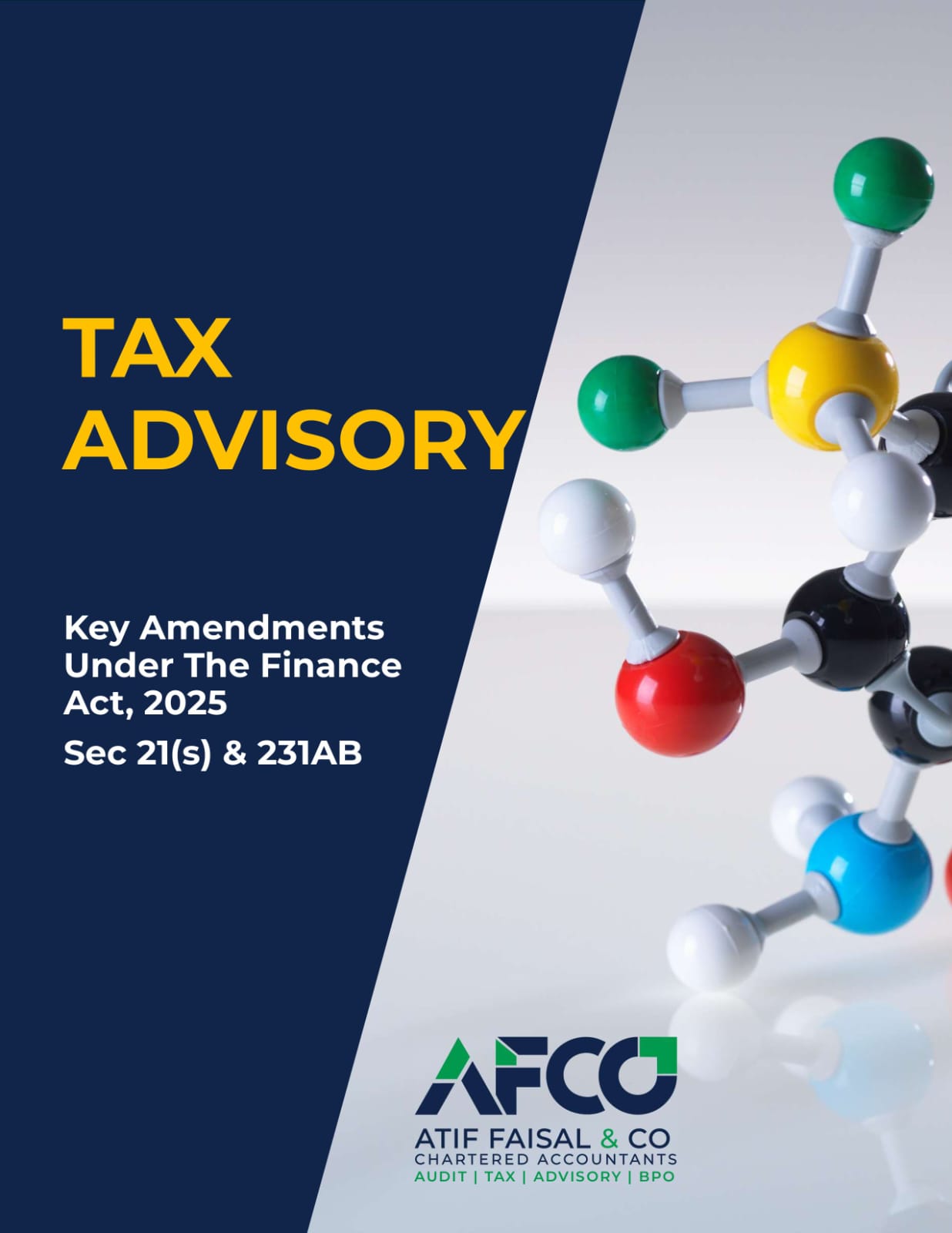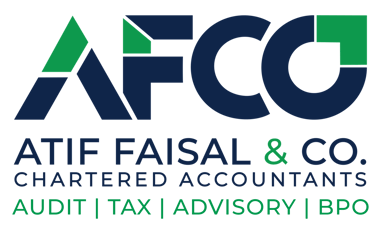TAX ADVISORY (CASH RECEIPTS ABOVE Rs. 200,000)
Key Amendments Under The Finance Act, 2025 Sec 21(s) & 231AB


The Finance Act, 2025 has introduced some important changes to the Income Tax Ordinance, 2001. Two amendments (in particular) deserve immediate attention due to their potential impact on how businesses handle cash transactions and claim expenses. Below is an explanation of each significant change along with examples for better understanding.
1. DISALLOWANCE OF BUSINESS EXPENDITURE RECEIVED IN CASH – SEC 21(S)
A new clause has been added to Section 21, which lists expenses that are not allowed as deductions against taxable income. The newly inserted clause (s) disallows 50 percent of the expenses claimed against a sale invoice exceeding Rs. 200,000 and the payment is received in cash or through non-digital, non-banking modes.
Example 1 – No Disallowance:
A shop sells goods worth Rs. 199,999 under one invoice and receives full payment in cash. Since the payment is below the Rs. 200,000 thresholds, no part of the associated expense will be disallowed.
Example 2 – Disallowance Applies:
A supplier sells goods worth Rs. 200,001 under one invoice and gets paid in cash. If Rs. 60,000 is claimed as expense (like rent, fuel, freight or commission etc.) against this sale, then Rs. 30,000 will be disallowed.
Practical Issue:
The law does not define how to calculate the expense "related to such sale." This opens the door for inconsistent interpretations. A business might argue that only a small part of its expense links to such cash sales, while the tax department may take a broader view. Without a clear method, there is a risk of arbitrary disallowance.
Instead of encouraging digital payments, this amendment could push more sales into the undocumented economy, as businesses may avoid recording such transactions altogether.
AFCO’s Note:
We expect most of the impact to fall on freight, commission, distribution, and promotional expenses that are typically linked with cash sales in retail and trading sectors.
However, there’s also a risk that the tax authority may wrongly treat purchases as disallowed expenses under section 21. But this interpretation has already been rejected in 2012 PTD (Trib.) 1444 (Messrs. Quality Home (Pvt.) Ltd. v. CIR), where the Appellate Tribunal held that:
"Section 21 applies to expenses in the profit and loss account. It does not apply to purchases which are part of the cost of sales."
In other words, purchases are not covered under Section 21, so any disallowance of purchases due to cash payment would be legally weak.
Example – Retailer:
A store buys goods worth Rs. 400,000 from a supplier and then makes sales in cash. Under the amendment, the FBR may try to disallow Rs. 200,000. However, since this is a purchase and not an expense claimed in the profit and loss account, the taxpayer can contest this based on the above judgment.
2. HIGHER TAX ON CASH WITHDRAWALS BY NON-FILERS – SECTION 231AB
This section deals with withholding tax on cash withdrawals by individuals not on the Active Taxpayer List (ATL). The threshold of Rs. 50,000 per day remains the same, but the withholding rate has been increased from 0.6 percent to 0.8 percent.
Example:
A non-filer withdraws Rs. 100,000 in cash from their bank account. The bank will now deduct Rs. 800 instead of the previous Rs. 600.
Policy Impact:
This change increases the cost of being a non-filer. However, it may also push some individuals further away from the banking system, especially in cash-based sectors. Instead of promoting transparency, it might encourage more off-the-books transactions.
AFCO Note:
These amendments show a clear push by FBR to discourage large cash dealings. While the intention is to document the economy, the practical outcome could be the opposite if the system is misused or if honest businesses are targeted without proper basis.
We recommend reviewing your payment policies and sales procedures to identify any areas that may trigger these provisions.
If your business frequently deals in high-cash transactions or makes payments without bank transfers, this is a good time to revisit those practices.
We are available to assist you in:
Reviewing expense structures
Assessing exposure under Section 21(s)
Defending against unfair disallowance or notices
Advising on smoother, tax-compliant processes going forward
AFCO Chartered Accountants
📞 0334-8257073 | 0346-9590166
